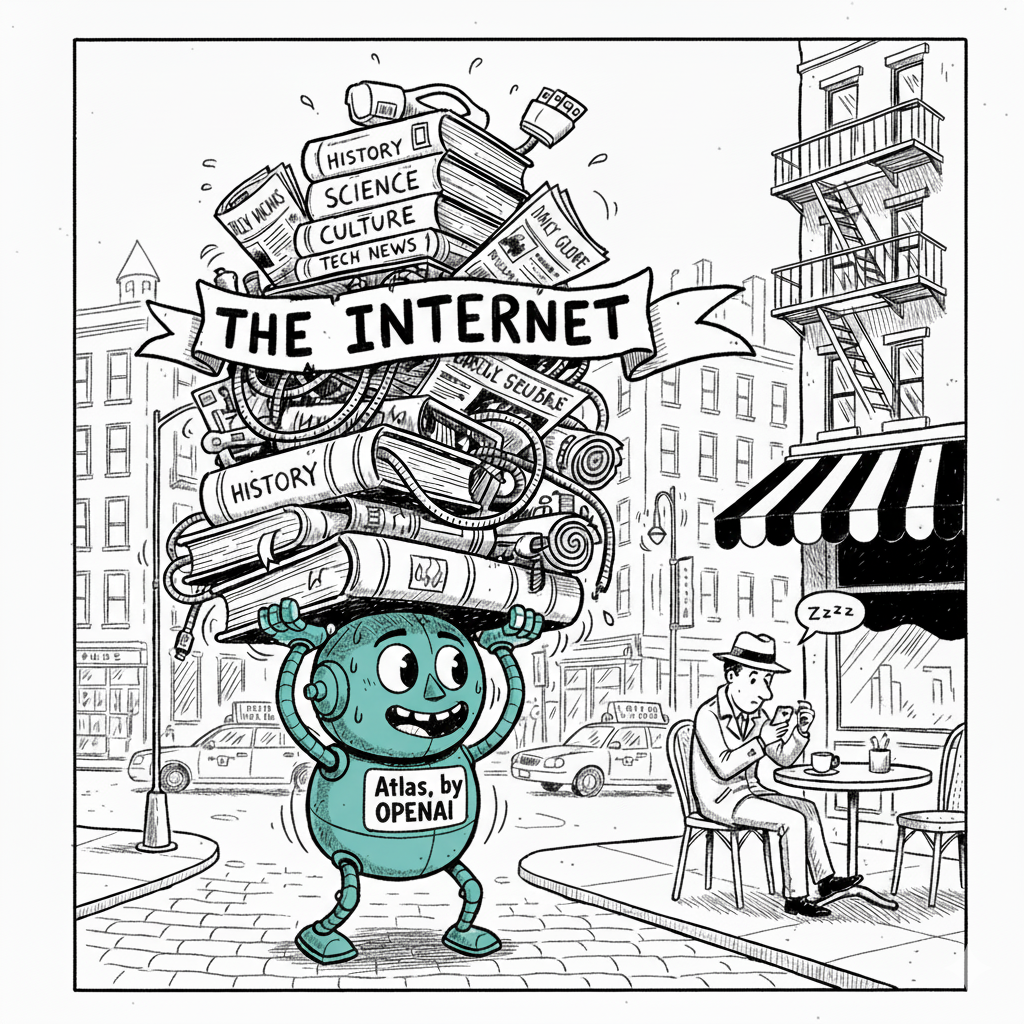OpenAI's Atlas Browser Is Launched
On October 21, 2025, OpenAI entered the browser market with the release of ChatGPT Atlas, a standalone application representing a direct challenge to Google's established control over how users access the internet.
On October 21, 2025, OpenAI entered the browser market with the release of ChatGPT Atlas, a standalone application representing a direct challenge to Google's established control over how users access the internet. The company has framed Atlas not as an incremental update but as a complete reimagining of the browser's purpose, designed to shift it from a simple content viewer to a dynamic and intelligent environment where AI serves as both an ongoing assistant and an independent agent. Its core functionalities are built on three pillars: Chat, Memory, and Agent. This includes a persistent, context-sensitive sidebar that allows users to interact with the content of any webpage for tasks like summarization or in-line text editing, eliminating the need to copy-paste information to a separate application. An optional "Browser Memories" function enables the AI to retain key details from visited websites, creating a semantic history that personalizes future conversations and allows for proactive suggestions. OpenAI has stressed that this feature is opt-in and provides users with full control to view, manage, or delete these memories. Atlas also inverts the traditional search results page by prioritizing a direct, AI-generated answer over a list of links, a move that could disrupt the advertising model that funds many online publishers.
The most powerful and debated feature, "Agent Mode," is available in preview for paying subscribers and transforms the AI from an assistant into an autonomous entity. It can carry out complex, multi-step actions across various sites based on a single natural language instruction, such as booking travel or ordering groceries. The agent navigates the web by interpreting ARIA tags that are the same accessibility labels that assist screen readers to understand the structure and function of webpage elements. To mitigate risks, OpenAI has implemented guardrails preventing the agent from accessing local files, running code, or acting on sensitive financial sites without explicit user approval. Despite these precautions, Atlas has drawn considerable criticism. Security researchers have highlighted what they describe as "insurmountably high" risks, particularly from "prompt injection" attacks, where hidden malicious instructions on a webpage can trick the agent into performing unauthorized actions. One study demonstrated that such attacks were successful over 11% of the time, even after security measures were implemented. Users and privacy advocates have also expressed significant alarm over the potential for pervasive data monitoring, with some online commentators labeling the browser a "100% privacy violation" and stating that using it is "tantamount to feeding your browsing history to a corporation". The most systemic concern is the potential damage to the open web's economy. By providing AI-generated summaries, Atlas threatens to sever the connection between users and publishers' websites, cutting off the referral traffic that generates advertising revenue. Data indicates this is a tangible threat. Finally, initial user feedback has pointed to practical issues, with many describing the Agent Mode's performance as "dreadfully slow" and questioning why many of its features weren't simply released as an extension for existing browsers.
